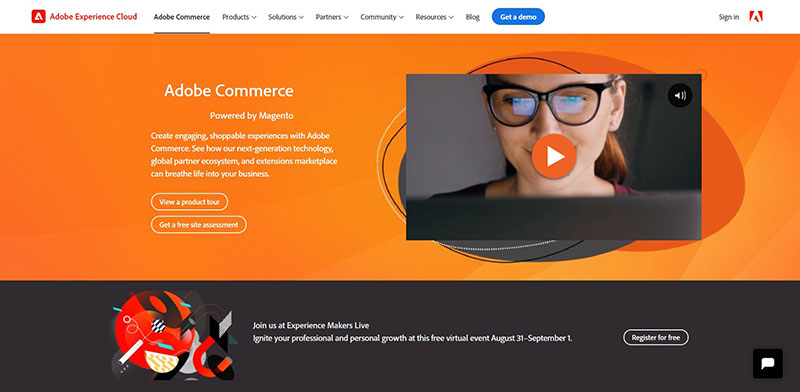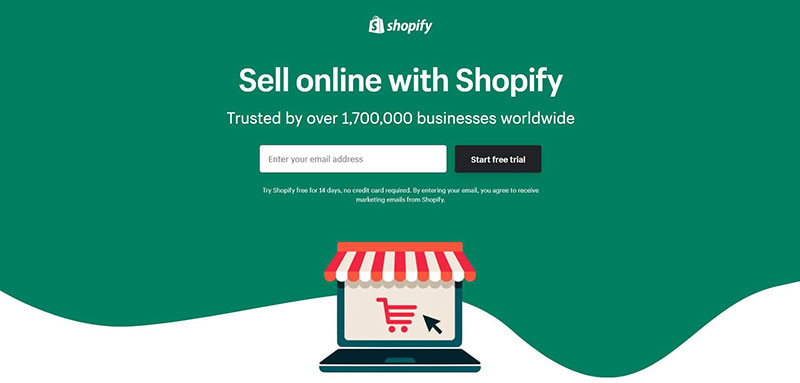Top 3 Ecommerce Platforms For Your Online Store
Building a successful online business demands an ecommerce platform that will fit your needs. With no shortage of ecommerce platforms available for online business, it can be a daunting task to choose the right one for yours. To make your decision-making process easier, here’s a compilation of the three best ecommerce platforms that you can use to launch your online store.
The best part of using an ecommerce platform for your online store website is that they come packed with all the essentials required to launch and run your ecommerce store. With an ecommerce platform, you don’t have to worry about coding, web designing or over-budgeting for the website’s infrastructure and development.
Top 3 Ecommerce Platforms for Your Store
According to research, WooCommerce, Magento and Shopify together make up almost 30% of the global market share for ecommerce platforms. We’ll talk about these three top-notch ecommerce platforms in this article and see why they’re used by countless ecommerce business websites.
1. WooCommerce

WooCommerce is a little different from all the other platforms out there because it is primarily an ecommerce plugin for WordPress. Nevertheless, with more than 80 million downloads, it is the world’s most popular solution for an ecommerce website.
More than 4.4 million websites currently use WooCommerce and the numbers are increasing each day. So what is it that this platform offers which has gotten so much attention? Let’s find out.
Features
In this section we will highlight some of the top features which make WooCommerce a trustworthy choice for so many ecommerce business owners.
Ease of Use
Given the fact that WooCommerce is a WordPress plugin, it’s highly customizable and easy to use. The interface lets you manage orders comfortably. From calculating live shipping rates, and taxes to printing out labels, you can do just about everything using WooCommerce.
Secure and Flexible Payment Integrations
WooCommerce can easily be integrated with all major payment gateways like Stripe, PayPal, Amazon Pay, Apple Pay and Google Pay. Other than that, it also supports all major payment methods like bank transfers, credit and debit cards, as well as cash on delivery.
Freedom of Hosting
Unlike Shopify which puts restrictions on your choice of hosting, WooCommerce gives you the freedom to choose among several different options.
For fast, reliable and secure ecommerce hosting platforms, you can choose Cloudways as your ecommerce website hosting partner.
Cloudways offers outstanding WooCommerce hosting experience – with the freedom to decide what you want, which includes a choice of 5 different IaaS providers and 5 different applications like WordPress, Magento and Laravel. WooCommerce hosting with Cloudways is also quite time-saving as you can use the WooCommerce Starter Bundle to launch your store with pre-installed extensions and plugins.
Have A Global Customer Base
One great feature of WooCommerce is that it can fully translate your ecommerce store into 24 different languages. So selling over cultural and geographical boundaries becomes a whole lot easier.
2. Magento

Magento is also one of the most popular ecommerce platforms currently available in the market. This platform handles over $100 billion in gross merchandise volume which shows the scale of its operations.
Magento is a part of the Adobe Experience Cloud. It seamlessly integrates digital and physical shopping experiences on its open source platform, along with a number of omnichannel solutions which allow you to carry out efficient order management.
Magento works best paired with an advanced cloud hosting platform. To further enhance your customer’s experience on your ecommerce store, you can choose a fully managed Magento hosting platform like Cloudways, which comes with 24/7 support and fast performance for your ecommerce store.
Features
Now let’s dive into some outstanding features that make Magento one of the best ecommerce platforms out there.
Non-Technical UI
Magento’s user interface is quite easy to understand. Its simple drag and drop feature, along with the content staging and preview feature, lets you design the best looking ecommerce stores according to your customers.
Easy Integrations
Magento can easily integrate with just about any third-party tool like ERP, CRM and marketing automation tools. This ease of integration further increases the platform’s functionality and helps in several other ecommerce-related tasks.
Freedom of Hosting
Much like WooCommerce, you can host your Magento ecommerce store on any hosting platform. But since Magento itself runs on cloud-based technology, it will work the best with a cloud hosting platform, like Cloudways.
Scalability and Expansion
Magento offers fast and easy expansion for both B2B and B2C businesses. If you have several different stores for your brands, you’ll still have the ability to centrally manage them.
With this feature, you can expand into different global markets while never losing control or your freedom of management. Your Magento ecommerce store will support multiple languages and seamlessly integrate with various payment gateways so that your customer base and business keep on expanding.
3. Shopify

In recent years, Shopify has become one of the most widely used ecommerce platforms in the world. It’s an all-in-one platform, covering everything from store management, marketing, SEO, hosting to analytics, storefront and mobile application.
Due to all these features, it is an expensive choice compared to all the other Shopify alternatives listed above. Plus, Shopify can be restrictive, especially when it comes to hosting your ecommerce store. It’s best suited for bigger businesses with a wider product range.
Features
Shopify offers plenty of amazing features.
Easy Integration
Shopify gives you the option of integrating with over 100 external payment gateways like Bitcoin, PayPal and Stripe. Apart from that, it also integrates seamlessly with dropshipping apps like eCommHub, Ordoro and Inventory Source. This means ecommerce store owners can easily expand their stores and increase their website’s functionality.
Customization Options
Since Shopify is solely an ecommerce platform, it offers tons of customization options to design the best-looking ecommerce stores for your customers. It comes with hundreds of pre-made templates that you can use and tweak according to your business’s personalization needs. These pre-made templates greatly reduce your store building time.
Payments and Shipping
Shopify is connected with all major shipping service providers and provides you with live shipping rates from UPS, USPS and FedEx. Furthermore, it also supports payments from all kinds of service providers like Mastercard, Visa and American Express, making payment processing a whole lot easier.
Hosting Options
Unlike most other ecommerce platforms, Shopify does offer its own web hosting with unlimited bandwidth. You can even buy a domain through Shopify and keep everything related to your store in one spot. However, to prevent your website from hacks and breaches we recommend keeping your hosting and website domain separate.
Conclusion
Launching an ecommerce store requires a lot of preplanning. So before you choose an ecommerce platform, keep in mind how big your store is going to be, what product categories you’ve decided on, the type of customer experience you’ll offer, your budget restrictions, and where you’ll want to sell your products. These questions will offer clarity on what you should expect from an ecommerce platform, and that should help you make the right decision.